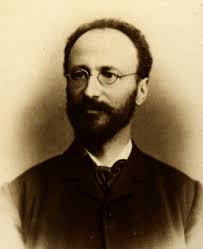The economist Eugen von Böhm-Bawerk arguing, in the 1890s, against the beloved-by-Marxists labor theory of value:
“Value and effort, as I have stated at length in another place, are not ideas so intimately connected that one is forced immediately to adopt the view that effort is the basis of value. ‘That I have toiled over a thing is one fact, that the thing is worth the toil is another and a different fact, and that the two facts do not always go hand in hand is far too firmly established by experience to admit of any doubt. It is proved by all the labor which is daily wasted on valueless results, owing either to want of technical skill, or to bad speculation, or to simple misfortune; and not less by each of the numerous cases in which a very little toil has a result of very great value.'”
Source: Eugen von Boehm-Bawerk, Karl Marx and the Close of His System, Chapter 4, Section 1, 1896. The second half is Boehm-Bawerk quoting himself from his earlier Capital and Interest (1890).

Böhm-Bawerk’s quote is a relevant argument – but Marx was talking about ‘labor time’ to produce a ‘product’ someone else ‘wanted’ – an exchange. In that case wouldn’t value have a relation to effort {labor time}?
Stephen Hicks, i really like your work. You are a great teacher, Keep doing that.
Thank you, Jonathan. Much appreciated.
Bohm-Bawerk’s abstract and unhistoric comment is often known and dismissed in Marxian circles as ‘The Mud Pie Argument’. Marx answers it thoroughly in the first chapter of Capital. John Roseman’s comment above partially covers it. There are indeed problematic issues in Marx’s Capital, but this isn’t one of them.
Marx pretty clearly agrees with this statement. He puts it succinctly in the conclusion of Chapter 1 of Capital: “…nothing can have value, without being an object of utility. If the thing is useless, so is the labour contained in it; the labour does not count as labour, and therefore creates no value.”
His elaboration of this topic is as follows: “Some people might think that if the value of a commodity is determined by the quantity of labour spent on it, the more idle and unskilful the labourer, the more valuable would his commodity be, because more time would be required in its production. The labour, however, that forms the substance of value, is homogeneous human labour, expenditure of one uniform labour power. The total labour power of society, which is embodied in the sum total of the values of all commodities produced by that society, counts here as one homogeneous mass of human labour power, composed though it be of innumerable individual units. Each of these units is the same as any other, so far as it has the character of the average labour power of society, and takes effect as such; that is, so far as it requires for producing a commodity, no more time than is needed on an average, no more than is socially necessary. The labour time socially necessary is that required to produce an article under the normal conditions of production, and with the average degree of skill and intensity prevalent at the time. The introduction of power-looms into England probably reduced by one-half the labour required to weave a given quantity of yarn into cloth. The hand-loom weavers, as a matter of fact, continued to require the same time as before; but for all that, the product of one hour of their labour represented after the change only half an hour’s social labour, and consequently fell to one-half its former value.
“We see then that that which determines the magnitude of the value of any article is the amount of labour socially necessary, or the labour time socially necessary for its production.[9] Each individual commodity, in this connexion, is to be considered as an average sample of its class.[10] Commodities, therefore, in which equal quantities of labour are embodied, or which can be produced in the same time, have the same value. The value of one commodity is to the value of any other, as the labour time necessary for the production of the one is to that necessary for the production of the other. “As values, all commodities are only definite masses of congealed labour time.””
I mention Marx because you did, but this theoretical framework was first elaborated by Adam Smith. Smith’s version doesn’t suffer from this problem either, but for different reasons than Marx laid out here. Both of their systems have their issues, but this criticism only flies if you haven’t done the reading.
Good quotation to mention.
Notice, though, that Marx is socializing labor, rather than focusing on individual labor, in making his value calculations.
You can socialise labour in the same way as you can socialise life – in abstraction only.
But to assume, as Marx does, that life and human existence as such, is social is a fundamental error.
In reality, life is a property of individuals and only individuals – not collectives.
In reality, there is no such thing as “social value” nor “socially necessary” nor “congealed labour” and neither can values be magically “embodied in commodities.”
Marx assumes as proof the very conclusion he proposes – begging the question on a grand scale.